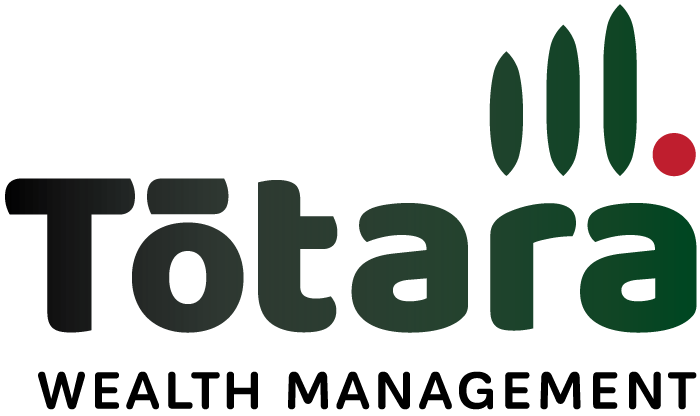The global economic outlook has improved, partly because of reduced geopolitical risks from trade wars and Brexit, although there is still uncertainty around the coronavirus outbreak (which has triggered a hopefully temporary flight to safety into bonds). Assuming the virus does not have major consequences, risk assets could perform well: Global fund managers think the equity market will not peak before the September quarter this year. Risks have not gone away completely, however, and relatively defensive assets such as REITs will also be worth holding, especially as their yields remain attractive relative to ongoing low levels of fixed interest income. In New Zealand, the economic outlook also looks better, but it is an open question as to how far it can support the currently expensive valuations of local equities.
New Zealand Cash & Fixed Interest
With no central bank decision meetings over the holidays, short-term interest rates have shown little change, and the 90-day bank bill rate remains a little under 1.3%. Long-term interest rates have fallen, mainly reflecting a decline in U.S. yields, and the local 10-year government-bond yield is down by almost 0.2% to just under 1.5%. The New Zealand dollar, barring a slight rise against the Australian dollar, is down across the board against other major currencies, and so far this year it is down 1.3% in overall trade-weighted value.
Inflation turned out to be a bit higher than expected in the December quarter, at an annual 1.9% rate. This made it more unlikely that the Reserve Bank will cut interest rates again.
Property & Infrastructure
New Zealand listed property has had a solid start to the year, with a 2.6% capital gain (and total return) for the S&P / NZX All Real Estate Index, slightly behind the 3.3% return from the wider share market.
Australian shares had a very strong start to the year, but the A-REITs did even better again, with the S&P / ASX 200 A-REITs Index notching up a remarkable 7.1% capital gain (and total return), outpacing the itself boisterous 6.1% return from equities overall.
Global property has also started the year positively, though it came nowhere near the A-REIT outcome. The FTSE EPRA / NAREIT Global Index in U.S. dollars is up 3.0% in terms of total return.
Infrastructure has also started the year well. The S&P Global Infrastructure Index in U.S. dollars for the year to date has delivered a net return (capital growth and taxed dividend income) of 2.4%, beating the equivalent 1.6% return from the MSCI World Index. Hedged into New Zealand dollars, the net return improved to 3.4%.
Australasian Equities
New Zealand shares have started the year well, with the S&P / NZX50 Index up 3.3% in capital value and returning 3.4% including the (minimal year-to-date) dividend income.
Australian shares have rocketed out of the starting gate. The S&P / ASX200 Index is up 6.1% in capital value and also in terms of total return. There were particularly large rises for consumer staples (10.7%) and IT stocks (10.2%). As usual, the financials sector was the slow coach, with a smaller 3.0% gain.
International Fixed Interest
In theory, bonds face a more difficult year. Although the global economic outlook remains uncertain, at the moment it looks likely that 2020 will be a better year for global business activity than 2019, and a strengthening business cycle is not usually helpful for bonds.
International Equities
The strong performance of global shares in 2019 carried on into most of January, though in recent days concerns about the potential impact of the Chinese coronavirus have been a setback. The MSCI World Index of developed economies in U.S. dollars had gained 2.4% from its end ‘19 level when it peaked on Jan. 17 but has since dropped back by 0.8%, cutting the year-to-date gain to 1.6%.
This early in the year, the regional breakdown does not contain a lot of meaningful information, but for the record the recent pattern of global performance shows that some of 2019’s key trends are still in place. Overall performance remains significantly dependent on the U.S.: Although the key eurozone markets of Germany and France have started the year well, ex the U.S., the World Index is up only 0.5%. And developed economies continue to outperform the emerging markets, where the MSCI Emerging Markets Index is up only 0.4% so far.
The outlook for global equities has improved. The reduction in geopolitical risk means that 2020 should be modestly better than 2019. The IMF, in its January update to its World Economic Outlook forecasts, thinks that the world economy will grow by 3.3% this year and by a little faster again (3.4%) in 2021.
DISCLAIMER: All care has been taken in preparing this information but to the extent that it is based on information received from other parties no liability is accepted by MorningStar or Totara Wealth Management for any errors or omissions. Morningstar and Totara Wealth Management give neither guarantee nor warranty nor make any representation as to the correctness or completeness of the information presented. Past performance is no guarantee of future performance. The material contained on this website is for general information purposes only and is not intended as, nor capable of being, financial advice or advice on any specific problem or any particular situation. Please read our full disclaimer.
